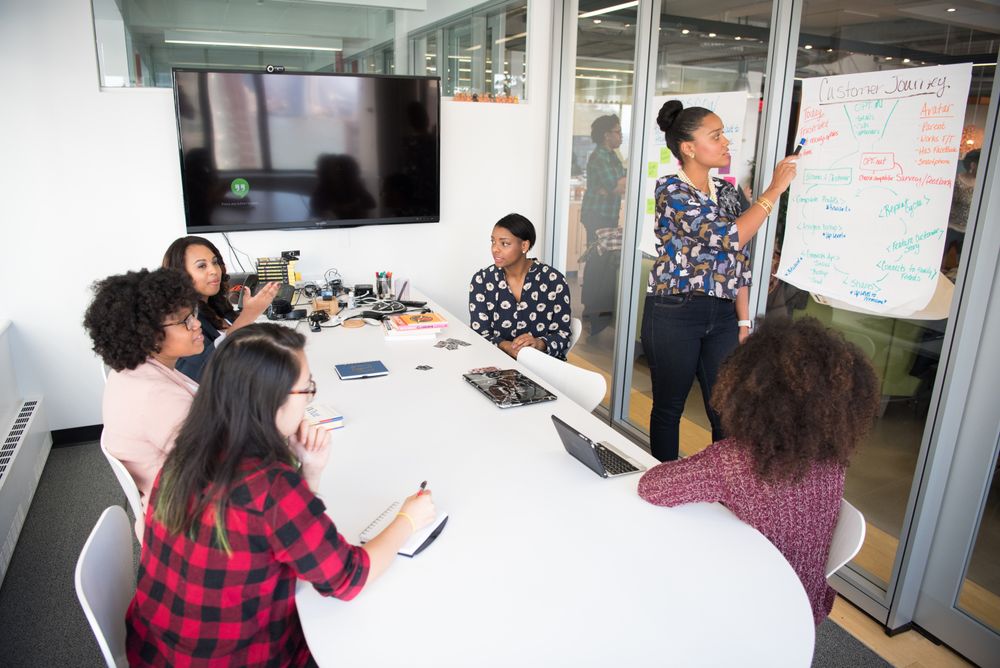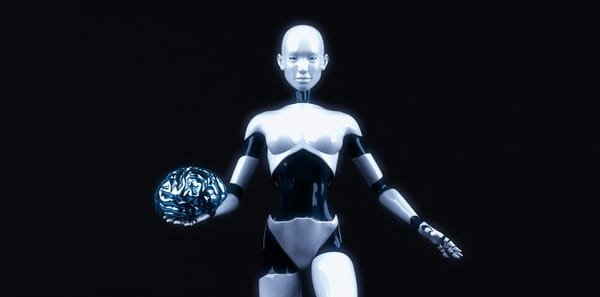Redefining Recruitment with AI-Powered Job Descriptions
Recruitment has come a long way since its beginning. From paper resumes to submitting them online and simplifying the process with technological advancements. But this transformation of the recruitment process isn’t stopping; it keeps on going. Nowadays, with the power of Artificial Intelligence (AI), new possibilities are served to recruitment’s plate. This article will discuss how AI affects and upgrades Job Descriptions.
The Power of Well-Crafted Job Descriptions
Job descriptions are the unsung heroes of every successful hire. Let me clear their image first. They aren’t just a simple list of job responsibilities but more of a job showcase. Job descriptions have a direct impact on the quality of candidates attracted and a business’s brand on the outside world. So, as you may have started to think already, smart job descriptions are able to attract top talent, foster a diverse and inclusive workforce, and set the basis for a great candidate experience.
A well-crafted job description is crucial in informing potential candidates about the significance of a job within the organization and doesn’t only focus on qualifications. Through them, candidates can learn info regarding the opportunities that a job offers and boost their enthusiasm and engagement from the very beginning of reading them.
Furthermore, well-written job descriptions are vital for creating an inclusive workforce. “How?” you may ask. The answer is very simple. By using unbiased and inclusive language, of course. This way, they show that businesses welcome every candidate, no matter their diverse background.
Another crucial aspect of smart job descriptions is the on-point listing of not just the job’s responsibilities but the skills and qualifications needed for it. This aspect is very important for both candidates and businesses. It saves a significant amount of time for both by mitigating mismatched applications.
A well-crafted job description can benefit businesses and potential candidates in many ways. It effectively informs potential candidates about their responsibilities, how important the role described is, and the skills needed for someone to cope with the job. Consequently, businesses can find engaged and well-suited employees to staff their vacant roles and improve their productivity.
What's AI's Role in Refining Job Descriptions
AI is currently reshaping the pivotal role that job descriptions have in recruitment. Its job is to automatically craft job descriptions and enhance the first contact between the candidate and the business.
AI’s powers improve the whole process of crafting job descriptions and take them to another level. The way it works ensures that every condition for crafting smart job descriptions is met. These conditions are, of course, the ones we previously discussed about. Let’s elaborate a bit further:
· Accurate Data: AI leverages info from a huge database and the web, making it a trustful source of accurate data and always up-to-date. This ensures that every AI-crafted job description lists the needed skills, qualifications, and responsibilities of the job based on the latest industry trends.
· Inclusive Language: AI’s ability to craft well-written job descriptions is bringing the inclusivity aspect to its game. Compared to the traditional method of composing job descriptions, its language model enables a fresh style in every job description while mitigating unconsciously biased language that a human may use, and thus, promotes inclusivity and attracts candidates with diverse backgrounds.
· Efficiency: The time-saving capabilities of AI crafting job descriptions for you are unreal. It crafts job descriptions fast and makes sure the language is consistent every time. HR professionals can have their time spent manually crafting job descriptions mitigated, and they are able to redirect their focus to more strategic tasks.
Why Choose AI for Your Job Description Needs
AI’s high efficiency, consistency, data accuracy, and inclusivity in its writing style are real game changers for businesses. It’s a tool that will play, if not already, an important role in the recruitment process of any business and will, for sure, benefit every other process. The time saved from manually crafting job descriptions allows HR professionals to reallocate their resources and run other administrative and strategic tasks.
Getting Started with AI for Job Descriptions
Leveraging AI’s powers for your business’s job descriptions isn’t just getting an AI vendor and starting the work. Businesses need to follow a process before starting to benefit from AI’s many powers. Here are some steps that will help your business efficiently implement AI for your job description needs:
1. Goal Identification: Businesses first need to identify their goals. What are you aiming for? A more inclusive workforce, improve the business’s productivity, or fill vacant posts with well-suited candidates? A better understanding of your goals shapes the overall AI strategy.
2. Explore your options: After identifying the business goals, you should start looking for your options and what they have to offer. Looking for potential reviews on each product on factors such as biased language and data accuracy is a great way to start.
3. Choose the right AI tool: Having explored your options, it’s time to choose the right AI tool for your business. You should make sure that the right tool integrates without any problem in your recruitment process and includes the features you want to enhance.
4. Employee Training: This is a crucial step for successfully leveraging AI’s powers. Businesses should train their employees and help them familiarize themselves with the use of such tools. The better the way of using it, the better the outcome.
5. Monitoring and Improving: Always keep in mind that improving never stops. You should monitor every job description and assess the results. This means that you should measure the effectiveness of each job description; for example, you should always keep looking if the job descriptions attract the right candidates and make improvements if needed.
Following these steps can help your business implement AI smoothly into your job description and greatly improve your recruitment process.
AI in Recruitment: Myths and Facts
Though AI’s powers are unlimited, there are some common myths that people believe. These myths have a negative impact on AI and, while not true, tend to be believed by public opinion, even though they haven’t experienced any of it. Let’s debunk some of the most common myths:
· AI will replace humans: AI is a tool made to help humans, not replace them. While it automates many tasks, not just job description generation, human thinking remains critical on every occasion.
· AI uses biased language: AI’s language model is made to use neutral language and avoid biased opinions. However, AI draws its info from a database, and if the user trains it to write this way, then the results will be biased. There always has to be a human supervising the results and making sure that every job description generated is inclusive.
· AI is expensive and complex: Many people believe that AI’s services are expensive to use and complex. That is, in fact, not true. Implementing AI for job descriptions usually requires a small fee but is not expensive at all. Its complexity is also false. You just need to prompt the AI with the job you need, and it will generate the descriptions for you, allowing you to make changes if needed.
· AI can’t handle complex roles: AI’s ability to analyze large amounts of data is what’s helping it excel in crafting job descriptions, even for more complex ones.
· AI requires extensive technical skills: Even though technical skills help, most AI tools provide a user-friendly interface and don’t really require extensive technical skills. Training is always suggested for familiarizing with the tool, but not for training employees for special skills.
How AI Will Shape Recruitment's Future
Sadly, we can’t ask the crystal ball for what’s about to come in recruitment in the future, but we can always make assumptions based on the foundations of AI that we are currently working on. As things are right now, we can expect full automation and streamlining of all the repetitive tasks that humans have to face every day in the recruitment process, from not just generating job descriptions but also finding the best-suited candidates for the job and tailored interactions for each individual.
Nonetheless, in every aspect of the recruitment process, we expect AI to work as a trustworthy soldier of inclusivity. This means that AI will be completely bias-free in every interaction that a candidate has with it.
Furthermore, AI’s data analysis capabilities give it the chance to generate predictive analytics. This data-driven approach will surely help in decision-making and lead to higher-quality hires and reduced turnover rates in the future.
Another great assumption for improving productivity and efficiency is personalized training. AI will be able to analyze employee performance and identify areas for improvement. Then, it will generate personalized training for each employee and suggest it. This not only helps employees acquire new skills and develop but also increases their engagement with the business and helps with retention.
Lastly, AI is continuously learning. It will never stop improving and will always have the power to identify new industry trends, candidate behaviors, and evolving recruitment strategies.
Embrace AI, Empower Your Recruitment
AI is already used by many. In the continuously evolving organizational landscape, every business is always trying to get ahead of the others. Those who have already embraced AI’s powers to improve their recruitment are already levels ahead of the others. From building an inclusive workforce to retaining talent, AI-crafted job descriptions are here to step up your business’s game and help you evolve. Its powers in job descriptions won’t ever stop and will forever evolve. So, don’t wait and be part of this transformation. Join the journey and empower your business right away.




